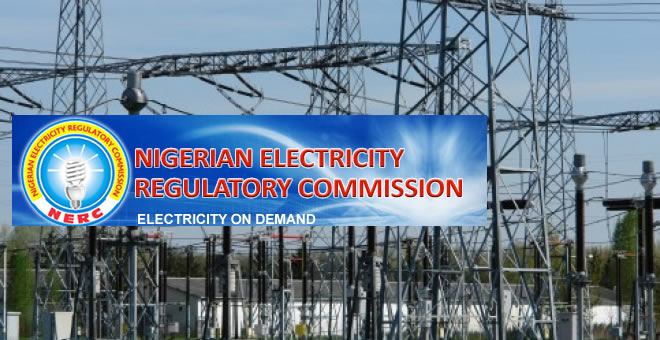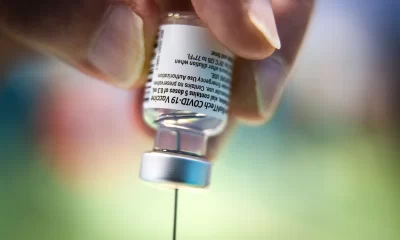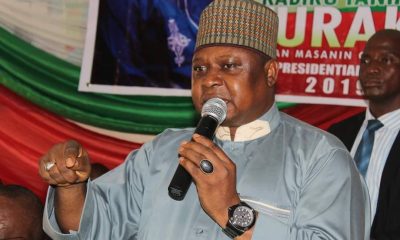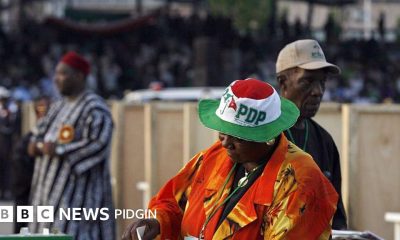Energy
NERC, discos set to review third-party meter rollout
Published
7 years agoon
By
Olu Emmanuel
The Nigerian Electricity Regulatory Commission (NERC) will meet with the 11 electricity distribution companies (Discos) in Nigeria’s power sector to assess the take-off and implementation of the third-party meter deployment scheme, Meter Asset Providers (MAPs), initiated by the regulatory agency.
However, as the date for the MAPs to begin rolling out meters to all electricity consumers enters the third day, the chairman of Ikeja Electricity Distribution Company (IKEDC), Mr. Kola Adesina, has said meter rollout alone will not solve the problem facing the power sector in the country.
It was also gathered that many Discos did meet NERC’s May 1 deadline for the conclusion of their selection of MAPs.
However, the regulator has insisted that all Discos must engage a MAP, insisting that the Discos conclude theirs immediately.
“The roll out commenced Thursday as contained in the permit. We shall have update from Discos/Permit holders during the NESI (Nigerian Electricity Supply Industry) meeting on Monday, May 6, in Lagos,” a senior official of NERC said.
NERC, from various notices it released, has indicated that it had issued permits to the Port Harcourt Electricity Distribution Plc; Yola Electricity Distribution Company Plc; Enugu Electricity Distribution Company Plc; and Ibadan Electricity Distribution Company Plc, to engage MAPs.
According to the agency, Discos’ MAPs permits were in accordance with section 4(3) of the MAP Regulations- NERC- R-112 of 2018.
It added that the Port Harcourt Disco appointed Armese Consulting Ltd and Holley Metering Ltd as its MAP; Yola Disco appointed Chris Ejik International Agencies Ltd; while Enugu Disco appointed Mojec International Ltd.
ALSO READ: Nigeria’s power grid under attack
Ibadan Disco, NERC said, appointed CWG Plc, Integrated Resources Ltd, Mojec International Ltd, Momas Electricity Meters Manufacturing Company Ltd, New Hampshire Capital Ltd, Protogy Global Services Ltd and Tinuten Nigeria Limited to provide meters within their respective franchise under the MAP scheme.
It also issued permits to Ikeja and Benin Discos to appoint their preferred MAPs, as well as to Abuja and Jos Discos.
NERC approved for Ikeja Disco to appoint Mojec International Limited to provide 399,790 meters; Consolidated Infrastructure Group Ltd – 397,922 meters and New Hamshire Capital Ltd – 276,699 meters respectively for it within its franchise network, while Benin Disco got its nod to appoint FLT Energy System Ltd; G-Unit Engineering Ltd; Inlaks Power Solution Ltd; Sabrud Consortium Nigeria Ltd and Turbo Energy Ltd to provide meters within its franchise network.
For Abuja Disco, NERC approved Mojec International Limited, Meron Consortium and Turbo Engineering Limited to provide 487,000; 213,000 and 200,000 meters respectively for the distribution company.
NERC also approved Triple 7 and Mojec International Limited consortium to provide 500,000 meters to Jos Disco.
The commission had directed that the rollout of meters under the MAP shall commence not later than May 1, 2019, and asked customers of the Discos to expect from the commencement of rollout date for meters to be installed in their premises within 10 working days of making payment to MAPs in accordance with section 18 (3) of the MAP Regulations 2018.
It added that MAPs shall charge an upfront amount of N36, 991.50 for single-phase meters and N67, 055.85 for three-phase meters.
“These costs of meters are inclusive of supply, installation, maintenance and replacement of meters over its technical life.
“The commission shall monitor closely the rollout plan of distribution licensees and overall compliance with the regulation and various service agreements by the MAP and electricity distribution licensees,” the NERC had stated in one of its statements on the scheme.
However, out of the 11 Discos, NERC reported that only eight have procured their MAPs. Kaduna, Kano and Eko Discos have not.
Meanwhile, Kola Adesina, the chairman of Ikeja Electricity Distribution Company (IKEDC), said only meter rollout will not solve the problem facing the power sector in the country.
Adesina, who spoke with journalists on the side-lines of the inauguration of the 2019 Young Engineers Programme (YEP), an initiative of the company, said rather than shifting focus to metering, the federal government and the regulators should recommend a holistic solution to all the fundamental problems in the power sector.
He said: “Well, you said it all, yesterday (May 1), was meant to be the first day for meter rollout. I believe that from today most of them will begin to see how fast they can rollout the meters. My own view has always been this: when you have a problem of this nature, it is a holistic solution that you need to recommend.
“But because the narratives for the power sector have shifted to metering as above the key solutions here, we want to see whether that alone can solve the problem. But I know that alone will not solve our problem. We still have many other issues within the value chain that need to be solved”.
Citing the power outage experienced in the country recently, which he said was caused by a bolt that went off leading to shutting down the pipeline for repair, Adesina stated that as a country, having only one pipeline was not acceptable.
He explained: “I give you an instance; recently we had serious power outage in Nigeria. The reason for that was that the gas provider had a leakage on the pipeline, and in solving that leakage, all generation companies had to ramp down their power because they cannot be supplying gas while they are repairing what needed to be repaired.
“So, it is a bolt that actually got off within the pipeline. So, they needed to repair that. Now, I say, for us to have a holistic, total, systemic solution, Nigeria should not have just one pipeline supplying gas to different power plants. Nigeria should have multiple gas pipelines to all the power stations that we have, such that if there is shortage in one, they can divert gas all to the other. But that is one side of the equation as well.”
He re-echoed the issue of electricity tariff as another fundamental issue that needs to be addressed in the power sector, saying without a cost-reflective tariff in place, stable, uninterrupted power supply might not be achieved as desired by Nigerians.
According to him, “Once there is cost reflective tariff and all the relevant critical enablers apart from tariff, are made available, investors and business will all fall suit. They will want to make more money doing the business and they will want to make legitimate money doing this business.
“If the cost of generation is N10 and tariff is N6, you can’t get power. If the tariff methodology is very clear; if the generation companies are charging to power companies, using the exchange rate of N305 to a dollar, therefore, the distribution companies must use the exchange rate of N305 to charge the customers for the power they are consuming.
“But today, the distribution companies are using N199 to $1. I am sure none of you can get a dollar at 199. So if the equipment required by distribution companies are being gotten at N360 per dollar, which is even the open market rate, then there is a big issue that somebody needs to speak to here.
“They cannot be using N199 as the exchange rate for distribution companies to you and I the consumer, and whereas the generation companies use N305 to charge to the distribution companies. So somebody is losing money and it is the distribution companies.”
Adesina called for the review of electricity tariff, saying tariff review was supposed to have been done for six times since the last review but that that has not happened till date.
Trending

 Health1 week ago
Health1 week agoFOI data show thousands of heart failures reports linked to AstraZeneca COVID-19 vaccine

 Latest1 day ago
Latest1 day agoYoruba film industry mourns as popular actress aunty Ajara passes away

 Trends2 days ago
Trends2 days agoTonto Dikeh reunites son with Churchill after decade-long split

 Crime1 week ago
Crime1 week agoUK Court hears digital, financial evidence in Diezani Alison-Madueke corruption trial

 Energy6 days ago
Energy6 days agoNNPC unveils gas master plan to boost Nigeria’s energy sector

 Latest1 week ago
Latest1 week agoCourt nullifies PDP National Convention, bars Turaki, others from parading as party officers

 Aviation1 week ago
Aviation1 week agoAir Peace dismisses fraud allegations, says Lagos–São Paulo direct flight process ongoing

 Latest1 week ago
Latest1 week agoPDP affirms leadership from Ibadan convention after Federal High Court ruling

